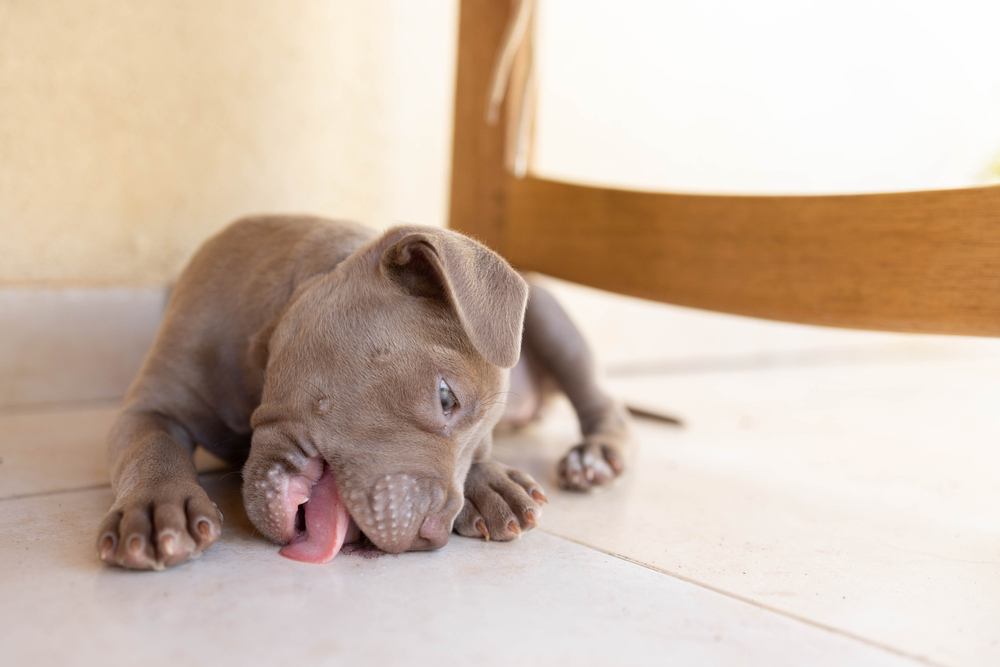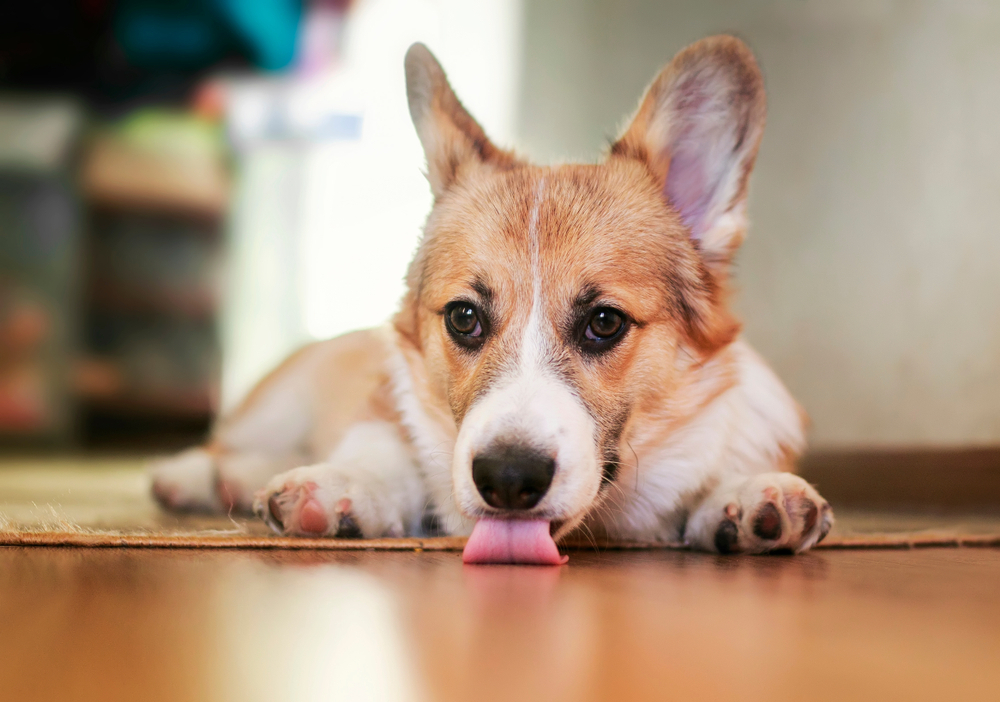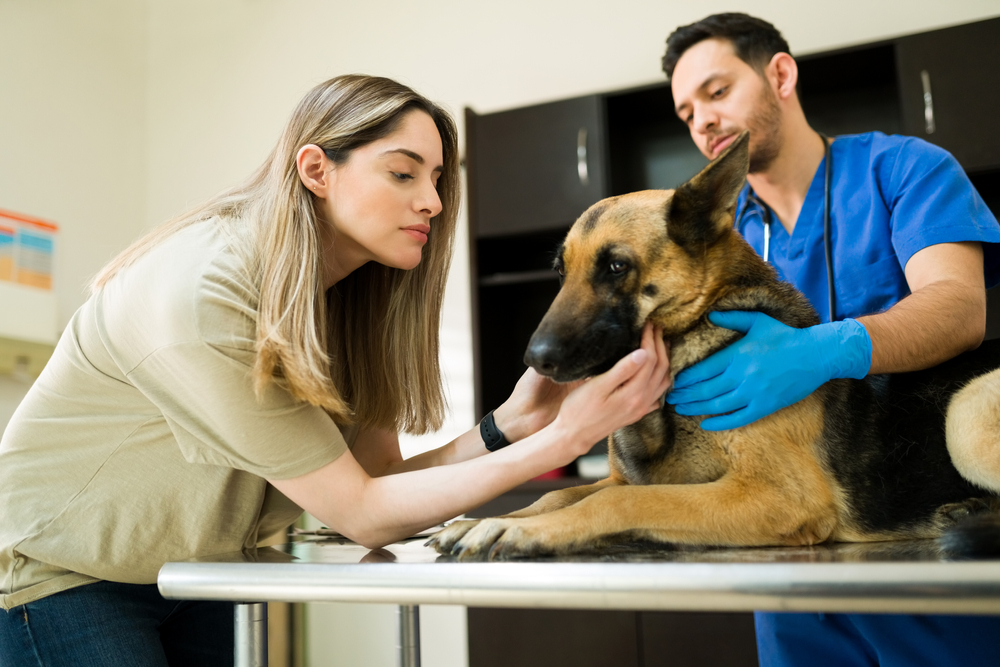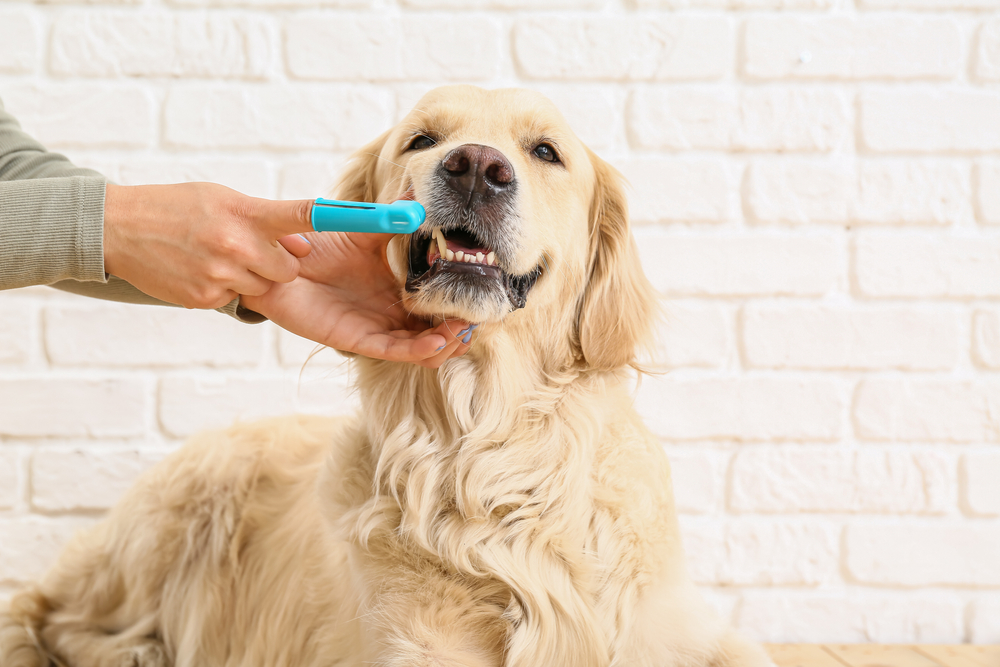Original Article: https://www.dogster.com/dog-behavior/why-does-my-dog-eat-their-own-poop
Dogs often engage in certain behaviors that seem strange to us but are completely normal for them. While it’s gross to think about, eating poop is a common behavior in dogs, especially when they’re puppies. It’s called coprophagia.
It’s best to discourage them from turning this behavior into a habit since they can reinfect themselves with parasites by eating their own poop. Eating other animals’ poop can pose more significant health risks, and it’s just not hygienic. In some cases, eating poop can be an indicator of a more complex health issue.
If your dog starts eating their own poop, it’s best to consult your veterinarian. Here are some possible reasons why your dog will eat poop and tips for preventing this behavior.


The 8 Reasons That Dogs Eat Their Own Poop
1. Common Behavior in Puppies
It’s common for puppies to eat their own poop, and they might do this for a variety of reasons. They may simply be curious about the smell and taste as they’re going through an explorative stage of growth and development. Sometimes, they may be accustomed to the smell of poop from their mothers’ mouths because nursing dogs often clean their puppies’ poop by eating it.
In most cases, it’s not dangerous for puppies to eat their own poop. However, it can get dangerous for them to develop the habit of eating other animals’ poop. So, it’s best to prevent your puppy from engaging in this behavior.

2. Nursing Dogs
Sometimes, it may look like nursing dogs are eating their own poop. However, they’re actually cleaning up after their own puppies. Young puppies need help pooping, and their mothers will encourage them to relieve themselves by licking them. Once their puppies have defecated, it’s common for their mothers to clean up the area by licking up their poop. This ensures their den and litter of puppies are kept clean.
3. Instinctual Behavior
Some dog experts attribute eating poop to instinctual behavior from wolves. Wolves will often eat fresh poop. It’s hypothesized that wolves do this to prevent fecal-borne intestinal parasites from infesting their dens.
A 2018 study also found that many dogs will eat fresh poop that is less than 2 days old rather than older poop, which gets rid of parasites before they become infective. Therefore, it’s possible that dogs have inherited this behavior from their wolf ancestors as a means of survival and protecting themselves from certain parasites.

4. Anxiety
Coprophagia can be a sign of anxiety and separation anxiety in dogs. It may be a displacement behavior that dogs may engage in to cope with their anxiety. Many different factors can trigger a dog’s anxiety, including sudden lifestyle changes, loud noises, and being forced into uncomfortable situations.
It’s common for dogs to engage in multiple behaviors when they’re feeling anxious. Other signs of anxiety in dogs include destructive behaviors, excessive barking, whining, howling, panting, and pacing.
5. Confinement or Isolation
Anecdotally, dogs that have been raised in confinement or isolation can develop the habit of eating their own poop. It’s common for rescued dogs that have experienced abuse or neglect to eat their own poop. Dogs that live in isolation and away from humans are also susceptible to developing this behavior.
It’s unclear as to why certain dogs will respond to confinement and isolation by eating their own poop. It’s possible that they may engage in this behavior to cope with anxiety and distress or because they weren’t fed properly.

6. Attention-Seeking
Some dogs may learn to eat their own poop because they realize that it gets people’s attention. It’s common for dog owners to have big reactions when they catch their dog eating poop. If you consistently show significant reactions to your dog whenever they eat poop, they may start to do this when they want attention. Therefore, it’s important not to overreact whenever your dog starts eating their own poop. Remaining calm and firm is more effective in teaching dogs not to eat their own poop.
7. Underlying Health Issue
Coprophagia can indicate an underlying health issue, especially if your dog suddenly starts to eat their own poop. Health issues associated with coprophagia include nutrient deficiencies and intestinal issues. In some cases, coprophagia may be connected to liver disease or neurological issues.
Since eating poop can be linked to a medical issue, it’s best to get your dog to a veterinarian if you notice this behavior. Oftentimes, receiving a diagnosis and getting the proper treatment will cause a reduction in dogs eating their own poop.

8. Fear of Punishment
Sometimes, dogs will eat their own poop if they’re having a negative experience with potty training. Dogs that are severely punished for pooping in the home may start to eat their own poop to avoid punishment. Therefore, it’s important not to yell at a dog or hit them when training them. Harsh punishments are not more effective than positive reinforcement, and they can cause significant harm to a dog’s emotional well-being and self-confidence.


What to Do If Your Dog Eats Poop
Make sure to remain calm if you catch your dog eating their own poop. Overreacting can teach dogs to eat poop whenever they want your attention. It’s better to say, “No,” calmly and sternly, and quickly remove your dog from the poop. Wipe their mouths with a washcloth and brush their teeth or give them a dental chew to freshen their breath. Make sure to clean up the poop and wipe up the area thoroughly. Use a dog stain and odor-eliminating spray to completely remove the smell of the poop, as this will help prevent your dog from pooping in the same area.
If your dog is an adult and suddenly starts eating their own poop, it’s time to take them to your vet for a checkup. Your vet can examine your dog and diagnose any health issues that may be causing them to develop the urge to eat their own poop.

Preventing Your Dog from Eating Poop
If eating poop is caused by a health issue, providing the proper treatment often allows this behavior to get resolved on its own. For example, if your dog is eating poop due to a nutrient deficiency, feeding them the right food often causes them to stop eating their poop on their own.
One of the best ways to keep your dog from eating their own poop is to clean up the poop right away. If you see your dog walking towards their poop or sniffing it, guide them away from it without causing a commotion. You can try to distract them by offering a treat or getting them to play with their favorite toy. It’s also helpful to teach your dog the “Leave it” command so that you can stop them from investigating and eating their poop.
You can also use a dog-safe deterrent pray on the poop, to create a negative assosciations. It’s usually helpful to work with a professional dog trainer to stop your dog from eating poop. A dog trainer can provide helpful tips and coach you through the entire process of preventing your dog from eating poop.


Conclusion
While eating poop is common in puppies and nursing dogs, it’s not common with adult pet dogs. The sudden occurrence of this behavior is often linked with an underlying health issue, so make sure to get your dog to your vet if they start eating their poop. If you have any issues or particular challenges with preventing your dog from eating their poop repetitively, don’t hesitate to enlist the help of a professional dog trainer.
Featured Image Credit: ThamKC, Shutterstock
Source: Dogster












